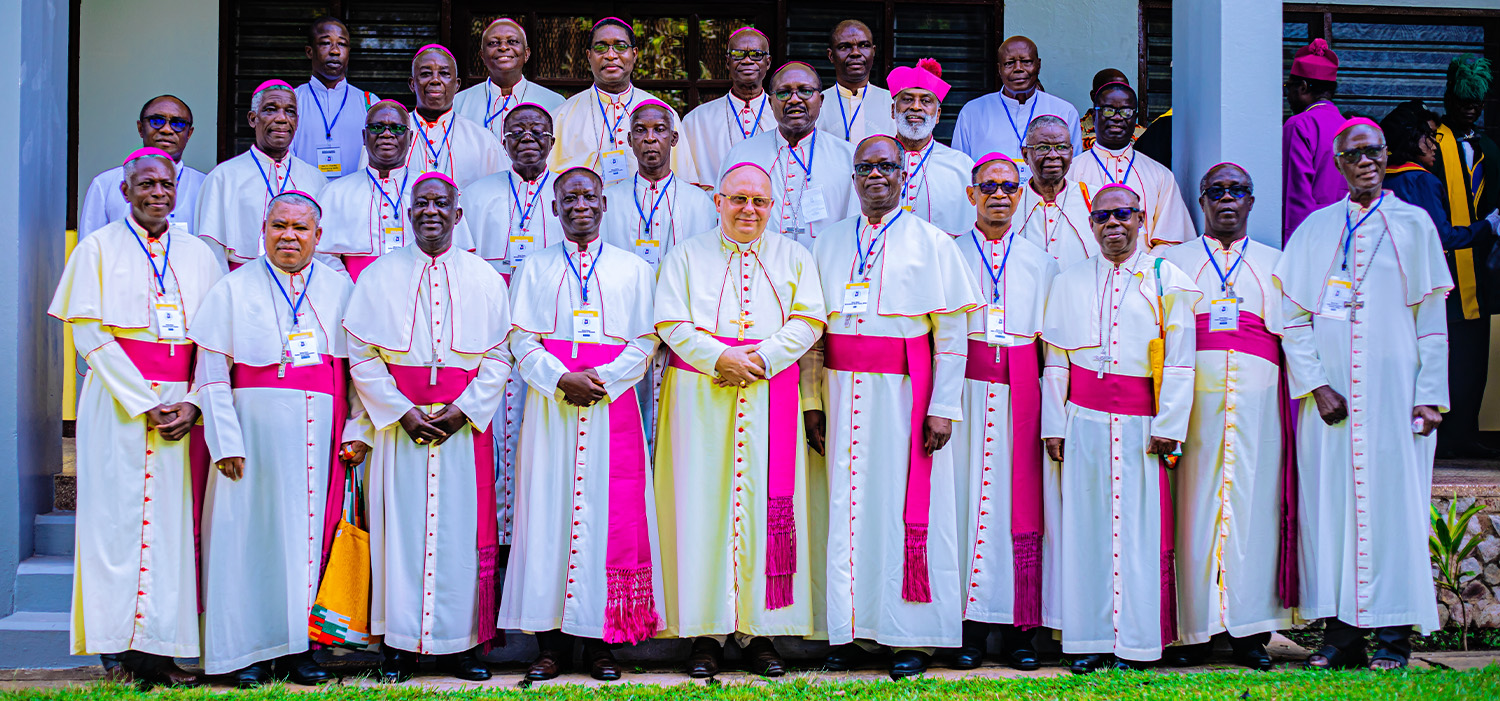By Paschal Norbert
DAMONGO, NOVEMBER 19, 2025 (CISA) – The Ghana Catholic Bishops’ Conference (GCBC) has issued a powerful and wide-ranging final communiqué warning that Ghana’s democratic stability, environmental health and national cohesion are under severe strain, calling for urgent moral renewal, political maturity, and decisive action from government and citizens alike.
Meeting from November 7–14 in Damongo for their annual plenary under the theme “A Synodal Church at the Service of Justice and Peace in Ghana,” the bishops said the nation stands “at a critical crossroads,” urging all stakeholders to walk together to safeguard peace and rebuild trust.
Bishops Warn of Deepening Divisions, Hate Speech and Deadly Conflicts
In one of the most strongly worded concerns, the bishops decried the rising political hostility, ethnocentrism, and deadly communal conflicts.
The bishops lamented: “We note with grave concern the escalating use of inflammatory, divisive, and sometimes hateful rhetoric in our public discourse… where healthy political competition tragically degenerated into violence, arson, and wanton destruction that threatened the fragile fabric of our national unity and social cohesion.”
They further warned that ethnocentrism is becoming a dangerous national threat, saying: “The increasing ethnocentrism in our nation grieves the heart of God… Historical instances… where ethnic sentiments were weaponised with devastating and genocidal consequences must never be repeated.”
Highlighting deadly conflicts in Bawku, Gbenyiri, Kalba, Bole and Nkwanta South, the bishops stressed that “These crises reveal that peace cannot be assumed but must be actively cultivated through inclusive engagement, mediation, and co-responsible collaboration among traditional authorities, government institutions, civil society, and religious bodies.”
Call for Radical Action on Galamsey, Environmental Emergency
The prelates painted a grim picture of Ghana’s environmental situation, backed by data on rapid destruction of forests and water bodies.
“Ecological degradation in Ghana is both a profound moral crisis and a spiritual challenge… about 75% of the nation’s rivers are now polluted, primarily by mercury and cyanide used in unregulated and irresponsible gold extraction,” they warned.
In a rare direct appeal to the President, the bishops demanded stronger state response, appealing “We call upon our dear President to announce even more radical action against this menace including the declaration of a state of emergency in high risk mining zones, swift prosecution of perpetrators regardless of political affiliation, and the full reclamation of lands ravaged by illegal/irresponsible mining.”
They also encouraged traditional leaders who stand firm against Galamsey, stating:
“We commend those Chiefs and Queen mothers who have fought courageously to protect their communities… and urge all others to emulate their good example.”
Corruption Still a National Cancer
Citing Ghana’s 2024 Corruption Perception Index score, the bishops said corruption continues to erode trust and justice.
They cautioned that “Corruption erodes justice and peace, weakening public trust in state institutions and the moral fabric of society.”
“It is absolutely imperative that both the Economic and Organised Crime Office (EOCO) and the Office of the Special Prosecutor exercise their mandates with complete independence… Their investigations must be guided solely by evidence, the rule of law, and professional ethics, without fear or favour,” the bishops insisted.
The bishops added that the success of Ghana’s anti-corruption fight depends on these institutions being “seen to be independent”, urging adequate funding and zero political interference.
Education, Democracy, Justice and Synodality in Focus
The communiqué reaffirmed the Church’s commitment to justice in education. The bishops insisted: “A clearly defined collaboration framework between Government, Missions, and Educational Units… must ensure student placement is free from bias or manipulation.”
They again pushed for Catholic children’s access to Catholic schools, stressing that “We re-echo our call for Government to guarantee that at least 20% of student intake in Catholic pre-tertiary schools is reserved for Catholic children.”
On political inclusivity, they warned against the “winner-takes-all” mentality, stressing:
“True democracy thrives not merely on procedural victories but on the ethical and moral cultivation of civic life.”
Reflecting on synodality, the bishops emphasised that the Church must model justice and peace internally before preaching it.
“True ecclesial credibility demands that transparency in financial stewardship, accountability in leadership, and preferential attention to the poor… are not mere ideals, but essential expressions of fidelity to the Gospel,” the prelates stated.
